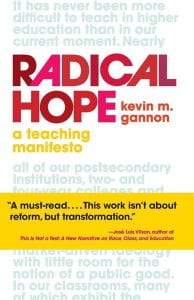New for Fall 2023, CATL will be hosting a “Workshop Wednesday” on the last Wednesday of each month from 3:30 – 4:30 p.m.
This Semester’s Workshop Wednesdays:
- Sept. 27 | 3:30 – 4:30 p.m. | Engaging Students with Evidence-Based Activities
- Oct. 25 | 3:30 – 4:30 p.m. | Cold Lunch & Hot Topics: Grading Practices and Efficiencies
- Nov. 29 | 3:30 – 4:30 p.m. | Career Infusion in Higher Education (Zoom link)
Engaging Students with Evidence-Based Activities (Sept. 27, 3:30 – 4:30 p.m.)
Congratulations on surviving your first week of the Fall 2023 semester. Your students are engaged and motivated to learn, eager to jot down every word, and participate in every activity you assign. Or maybe not. If you find that your students have started drifting off or pulling out their phones instead of doing their work, it might be time to consider some engagement strategies.
While we wish we could wave a magic wand and increase the engagement of all our students, we know that’s not realistic. There are some activities, however, that can increase participation and general motivation over time. Want to know more? Join CATL for our first virtual ‘Workshop Wednesday’ of the year on Wednesday, Sept. 27, at 3:30 p.m. where we will tackle this issue.
Cold Lunch & Hot Topics: Grading Practices and Efficiencies (Oct. 25, 3:30 – 4:30 p.m.)
Share Your Best Grading Tips with CATL & Other Instructors!
Do you have any grading advice to offer to fellow instructors? CATL is soliciting recommendations for using the Canvas Gradebook, staying on top of grading, implementing alternative grading approaches, or making the most out of Canvas Rubrics and SpeedGrader. Send us your best tips by completing this survey.
Then join CATL, along with other UWGB instructors, for our next “Cold Lunch & Hot Topics” on Wednesday, Oct. 25, from 3:30 – 4:30 p.m. in which we’ll share the tips you’ve submitted and host an informal discussion about grading practices and efficiencies. This hybrid event will be hosted on Zoom for those who want to join virtually and in person in the CATL conference room (Cofrin Library 405C).
Career Infusion in Higher Education (Nov. 29, 3:30 – 4:30 p.m.)
CATL’s Workshop Wednesdays continue this month with a session on career infusion! Join CATL Director Kris Vespia for a brief presentation and open discussion about concrete ways instructors can infuse marketable skills and career information into their courses, including liberal arts and STEM fields. This virtual event will be hosted via Zoom on Wednesday, Nov. 29, from 3:30 – 4:30 p.m. You can register to receive an Outlook calendar reminder or simply drop in using the Zoom link.

 Are you interested in diving deeper into the topics from the 2024 IDI Keynote address by
Are you interested in diving deeper into the topics from the 2024 IDI Keynote address by 